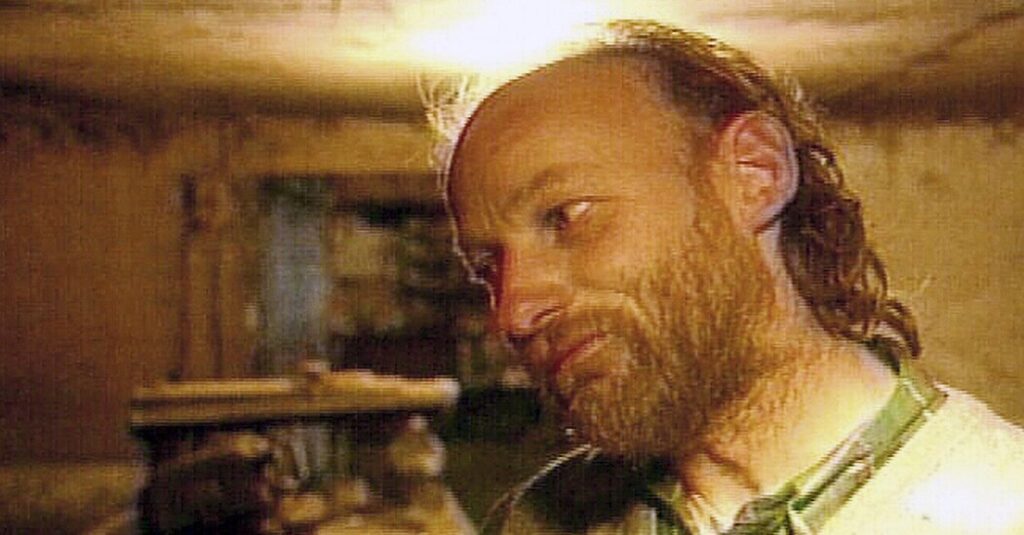Robert Pickton is one of Canada’s most notorious serial killers, whose crimes have drawn police attention and heightened society’s indifference to the violent deaths of Aboriginal women. He was serving a life sentence in a Quebec prison when he was attacked by an inmate and died. He is 74 years old.
The Correctional Service of Canada announced his death in hospital, saying he was attacked on May 19 at Port-Cartier Prison and the cause of death was unknown. The announcement did not give a motive for the attack.
Pickton was convicted in 2007 of murdering six women, despite bragging to an undercover police officer that he had killed 49 women in total.
The victim’s remains were discovered at a ramshackle pig farm he owned outside Vancouver, where authorities conducted what was then the largest crime scene investigation in Canadian history. Eighteen months later, they discovered the remains of 33 women.
The victims were primarily members of Aboriginal groups, most of them sex workers and drug users whom Pickton met in the Downtown Eastside, the heart of scenic, affluent Vancouver.
According to an investigation by the British Columbia provincial government, Pickton was able to continue killing for so long because of police bias against the victim’s race and marginalized status.
Although the missing woman’s family alerted authorities, Vancouver police and the Royal Canadian Mounted Police were slow to suspect a serial killer was stalking the Downtown Eastside. An official investigation released in 2012 listed 67 women murdered or missing in the neighborhood in the 20 years before Pickton was arrested in 2002.
“The pattern of predatory violence is clear and responsible professional bodies should have responded quickly and harshly, but this has not been the case,” the report said.
Evidence of Mr. Pickton’s brutality was discovered almost by accident when an RCMP Secret Service agent was dispatched to investigate after reports emerged that Mr. Pickton had an unlicensed shotgun on his property in the Vancouver suburb of Port Coquitlam.
A sign in front of the 15-acre farm he owns with his brother warns intruders: “No visitors, agents, vendors or salesmen – admission by appointment only! (No exceptions.)”
Police discovered gruesome human remains, including dismembered hands and feet and the decapitated head of a woman. They believe Mr Pickton fed the body parts to his pigs or destroyed them with a wood chipper.
According to a 2002 New York Times article, Mr. Pickton, his brother and sister inherited the pig farm from their father, who died in the 1970s. Mr. Pickton never married and had no children.
Robert William Pickton, formerly known as Willy, was born in Port Coquitlam on October 24, 1949, to Leonard Pickton and Louise Helen Louise Helene (Arnal) Pickton. Information on survivors was not immediately available.
He was accused of 26 murders, but a judge limited his trial to six to give the jury evidence. Prosecutors subsequently suspended 20 other cases after Pickton was found guilty of six counts of second-degree murder and sentenced to life in prison. (Canada does not have the death penalty.)
The women he was convicted of killing include Selina Abbotsway, Mona Wilson, Andrea Jewsberry, Brenda Wolfe, Georgina Papin and Marnie Frey.
In 2014, a RCMP report found that from 1980 to 2012, approximately 1,181 Aboriginal women were killed or disappeared across Canada. They accounted for 16% of those who were murdered.
In 2019, a national inquiry concluded that police and the criminal justice system were failing Aboriginal victims by viewing them “through the lens of pervasive racist and sexist stereotypes”.
The chief commissioner of the investigation described the scope of the murders as “genocide”.
Prime Minister Justin Trudeau, who approved the three-year inquiry after his conservative predecessor blocked it, said when the findings were released that “this is a troubling day for Canada, but it is an important day.” .
A statement issued by the Correctional Service of Canada on Friday acknowledged the racial overtones of Mr. Pickton’s murder: “We note the impact this offender’s case has on communities in British Columbia and across the country, including First Nations, the victims and their families. The impact is devastating and our thoughts are with them.

